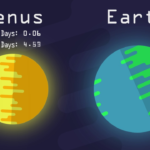
Introduction
Bananas are one of the most popular fruits in the world, loved for their taste and rich nutritional value. However, did you know that bananas are also naturally radioactive? While this might sound alarming, the radiation levels in bananas are completely harmless. This article explores the science behind banana radioactivity and why you don’t need to worry about eating them.

Why Are Bananas Radioactive?
Bananas contain potassium-40 (K-40), a naturally occurring isotope of potassium that is slightly radioactive. Potassium is essential for human health, helping with nerve function, muscle contraction, and maintaining fluid balance. However, about 0.012% of all potassium in nature exists in the radioactive form (K-40), which decays over time and emits small amounts of radiation.

How Much Radiation Do Bananas Emit?
The amount of radiation emitted by a banana is measured in Becquerels (Bq), a unit that represents one radioactive decay per second. A single banana emits about 0.1 microsieverts (a measure of radiation dose).
To put this in perspective:
- A chest X-ray gives about 100 microsieverts (1,000 times more than a banana).
- A single flight from New York to London exposes you to 40 microsieverts due to cosmic radiation.
- The annual radiation dose from natural background radiation is around 2,400 microsieverts.
So, eating a banana doesn’t significantly increase your radiation exposure.

What Is the Banana Equivalent Dose (BED)?
Scientists sometimes use a fun unit called the Banana Equivalent Dose (BED) to compare radiation exposure. For example:
- A dental X-ray is equivalent to eating 50 bananas in terms of radiation exposure.
- Living near a nuclear power plant for a year exposes you to the same radiation as eating 3 bananas.
This comparison helps people understand radiation exposure in a simple and relatable way.

Should You Worry About Eating Bananas?
Absolutely not! The radiation from bananas is too small to cause any harm. Your body naturally regulates potassium levels, meaning it doesn’t accumulate excess potassium-40. Moreover, potassium is an essential mineral that supports vital bodily functions, so avoiding bananas would do more harm than good.

Other Radioactive Foods
Bananas aren’t the only naturally radioactive foods. Here are a few others:
- Brazil nuts – Contain small amounts of radium.
- Potatoes – Contain potassium-40, just like bananas.
- Red meat – Has trace amounts of radioactive carbon-14.
- Beer – Yes, even beer contains small amounts of natural radiation!
Conclusion
Bananas are naturally radioactive, but the radiation they emit is insignificant compared to everyday background radiation. There’s no reason to worry about eating bananas; they remain a nutritious and delicious fruit. In fact, you’re exposed to more radiation just by flying on an airplane than by eating a banana!
So go ahead and enjoy your bananas—radiation and all! 🍌💛



